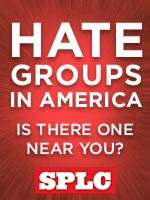Today I’m stuck on Martin Luther King, Jr.'s "beloved community," Robert Putnam’s research on “social capital,” Joe Bageant’s observation that most Americans are living in a happy hologram, and an article in The New Republic called “Death Grip,” which purports to explain why people vote for George Bush.
If you haven’t gotten to know Joe Bageant, it’s time. Here’s a sample:
Americans, rich or poor, now live in a culture entirely perceived through simulacra-media images and illusions. We live inside a self-referential media hologram of a nation that has not existed for quite some time now, especially in America’s heartland. Our national reality is held together by a pale, carbon imprint of the original. The well-off with their upscale consumer aesthetic, live inside gated Disneyesque communities with gleaming uninhabited front porches representing some bucolic notion of the Great American home and family. The working class, true to its sports culture aesthetic, is a spectator to politics. . . politics which are so entirely imagistic as to be holograms of a process, not a process. Social realism is a television commercial for America, a simulacran republic of eagles, church spires, brave young soldiers and heroic firefighters and ‘freedom of choice’ within the hologram. America’s citizens have been reduced to Balkanized consumer units by the corporate state’s culture producing machinery.
We no longer have a country—just the hollow shell of one, a global corporation masquerading electronically and digitally as a nation called the United States.
You know it’s true. Gated communities spring up like Hollywood sets all over the country. My cousin calls them “happy towns” because people believe that if they can just live there, they’ll finally be happy.
Everybody’s got to believe in something, I guess. Lacking anything substantial, we’ll take the simulacra, please. Make that with beer and chips.
Which brings me to Putnam. Social capital is, basically, the fabric that knits us together, unit by unit, into a shared and beloved nation. It’s all the little grids made up of churches, associations, social clubs, Tupperware parties, Red Cross tents, League of Women voters, Rotary Clubs, and PTAs that give us ways to interact and form allegiances, and the resulting bonds of acquaintance, friendship, shared interests, and trust that allow us to function in concert for mutual benefit.
The analogy is to capital as in real property, wealth, and we’re just about broke.
Despite the fact that numerous studies here and abroad show a powerful correlation between high levels of social capital and all kinds of social benefits – lower crime, better schools, more and faster economic development, more effective government, higher voting levels, more altruism, etc.--America’s social capital has been declining since the mid-60s/early 70s.
This was first brought to our attention by Robert Putnam, in Bowling Alone: The Collapse and Revival of American Community and later treatments, and he suspects that the cause wasn’t hippies after all, but television. Writing for The American Prospect in 1996, Putnam concluded:
Moreover, just as the erosion of the ozone layer was detected only many years after the proliferation of the chlorofluorocarbons that caused it, so too the erosion of America's social capital became visible only several decades after the underlying process had begun. Like Minerva's owl that flies at dusk, we come to appreciate how important the long civic generation [those born roughly between 1910 and 1940] has been to American community life just as its members are retiring. Unless America experiences a dramatic upward boost in civic engagement (a favorable "period effect") in the next few years, Americans in 2010 will join, trust, and vote even less than we do today. (Emphasis mine.)Basically, more of us live our lives very close to home, in relative isolation from everyone except our immediate families, if we have families, and fewer of us belong to churches, civic groups, professional, interest, or trade associations, labor unions, garden clubs, PTAs, bridge clubs, and so on, or even socialize with friends much. Not even the advent of Internet-based association has improved our social capital. The groups we do belong to—like MoveOn.org—whatever—don’t really involve actually seeing each other’s faces, much less the human touch. Membership is likely to boil down to reading a website and clicking a VISA icon to pay our dues.
By the way, the seeming countertrend since Putnam first wrote Bowling Alone—church membership—is limited to the right wing of the Protestant half of Christianity and even this, despite the much touted mega-churches, is showing signs of disintegration. Members who joined seeking spiritual sustenance are leaving within a year or two, having found mostly infotainment and coffee bars instead.
Which brings me to the prevailing Republican political ideology—a virulent form of social Darwinism evident in any number of anti-regulatory and “free market” Republican policies, in GOP political advertising distortions that pit each of us against the other (the “gay agenda,” “socialized" medicine), and in the GOP’s apparently thorough repudiation of core human decency (honesty, fairness, personal integrity, tolerance, empathy, the sanctity of the vote, etc.).
So my question is this. What happens to the common good when the majority of citizens, already unplugged from social networks and living in a holographic projection of an actual country that is still blessed with real ungenetically engineered food, real know-the-neighbors neighborhoods, real people of different shapes, colors, sizes, and relationships, real dogs and cats, and genuine shared aspirations, are fed, day in and day out, with xenophobia, hyper brown-shirt patriotism, terror, rage, violence, and paranoia?
What happens when these same souls see super-machismo, blind allegiance, and boythink (see my earlier post of this title) as synonymous with patriotism, and getting rich as necessarily respectable? What happens when mass-marketed historical revisionism defines “liberalism” as moral depravity instead of what it actually is—Freedom’s Power, in Paul Starr’s apt title—and hyper Ayn Rand individual-rightsism is touted as the Way, the Truth, and the Light?
What happens when society’s single most important common socializing force, the public school, is either allowed to deteriorate or is replaced by home schooling; when the most productive curriculum in history--traditional liberal arts, with its emphasis on tools for independent thinking—is replaced by pre-packaged, mail-order rightwing propaganda that our kids are force-fed in isolated little pod houses?
What happens when 50% of kids are dropping out of high school—I mean, apart from the inevitable collapse of our competitive market, AKA our economy, and the mass production of a bunch of illiterate little twerps who can shoot a 9mm but can't find China on a map?
What happens when systematic exposure to other cultures, religions, values systems, social and political solutions—once regarded as the mark of culture and a prerequisite for trustworthy political leadership—is labeled as a “war on Christianity”?
What happens when our president replaces a traditional military and its traditional rules of engagement with a Christianist private mercenary militia accountable to nobody because its values are solely self-referential?
Which brings me to “Death Grip,” and what political psychologists believe about why certain people voted for George Bush:
. . . Bush's popularity in the years after September 11 stemmed in part from Americans' need for a charismatic figure who could help them overcome these thoughts [unconscious thoughts of their own deaths, triggered by reminders of 9-11 and the Word Trade Center]. Bush's appeal, the psychologists speculated, lay ‘in his image as a protective shield against death, armed with high-tech weaponry, patriotic rhetoric, and the resolute invocation of doing God's will to rid the world of evil.'Everything we said about how the Bushies manipulate terror alerts for political advantage wasn't just correct. It was scary correct.
What worries me is that if this thug was that popular in 2004, how much more popular will a grown-up fascist be in 2010, all things considered?



















0 comments:
Post a Comment